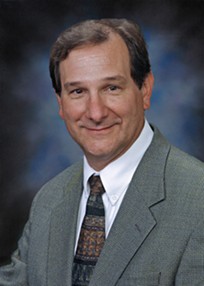Wednesday, April 29, 2015
Cardiologist to Present on Connections between Air Pollution and Heart Health
Pittsburgh is ranked one of the worst cities for pollution by fine particles in the air. Tomorrow night, one of the largest health systems in the region will join local air-quality watchdogs to discuss the connection between air quality and heart health.
"Our region continues to have some of the worst air pollution in the nation, especially from fine particulate matter," says Rachel Filippini, executive director of the Group Against Smog and Pollution. Fine particles, those up to 30 times smaller around than a human hair, penetrate deeply into the lungs. "We know fine particles are associated with many health problems, and are often associated with asthma and respiratory issues, but heart health is also a concern," she says.
The event is free and open to the public but is also targeted at medical professionals, who by attending can earn continuing medical-education credits through Allegheny Health Network, one of the sponsors of the event.
"They’re [medical professionals] often seen as a credible source of information, so having those professionals speak at public events and to decision-makers carries a lot of weight in pushing the message that clean air is critical," Filippini says.
Speakers will include Wayne Cascio, physician and director of the U.S. EPA's Environmental Public Health Division, and James Fabisiak, of the University of Pittsburgh's Graduate School of Public Health, who is one of the authors of the Pittsburgh Regional Environmental Threats Analysis.
"It’s possible that these small particles actually leave the lungs and travel in the bloodstream, but that’s probably the least likely scenario," says Cascio. "It's more likely that particles settle in the lungs where they initiate or cause inflammation and activate white blood cells, [which] release chemicals that travel and cause effects elsewhere in the body. The effects they provoke maybe actually be in the blood cells, liver [or] abdominal fat."
Cascio says those connections will be the main focus of the talk tomorrow night.
"The other possibility that is kind of intriguing is that the particles irritate receptors in the lungs, and the receptors then signal back to the brain. The brain then sends electrical signals back to the body, which influences blood and heart function," Cascio says. "Those effects are quite rapid, measured probably within minutes of being exposed to air pollution, whereas the others [scenarios] take longer."
He says his research at the EPA includes looking at population-level data and associations with air pollutants as well as animal and cellular studies to investigate the potential biological mechanisms to explain those associations. He says the EPA also does limited studies with volunteers who periodically have blood work and other biological evaluations to determine the effects of air-pollutant exposure in their daily activities.
"We thought it would be important to bring someone with expertise from the regulatory side as well as being a physician himself," Filippini says.
5-8 p.m. Allegheny General Hospital, Magovern Conference Center, 320 E. North Ave., North Side. More info at http://gasp-pgh.org/heart-health/
"Our region continues to have some of the worst air pollution in the nation, especially from fine particulate matter," says Rachel Filippini, executive director of the Group Against Smog and Pollution. Fine particles, those up to 30 times smaller around than a human hair, penetrate deeply into the lungs. "We know fine particles are associated with many health problems, and are often associated with asthma and respiratory issues, but heart health is also a concern," she says.
The event is free and open to the public but is also targeted at medical professionals, who by attending can earn continuing medical-education credits through Allegheny Health Network, one of the sponsors of the event.
"They’re [medical professionals] often seen as a credible source of information, so having those professionals speak at public events and to decision-makers carries a lot of weight in pushing the message that clean air is critical," Filippini says.
Speakers will include Wayne Cascio, physician and director of the U.S. EPA's Environmental Public Health Division, and James Fabisiak, of the University of Pittsburgh's Graduate School of Public Health, who is one of the authors of the Pittsburgh Regional Environmental Threats Analysis.
"It’s possible that these small particles actually leave the lungs and travel in the bloodstream, but that’s probably the least likely scenario," says Cascio. "It's more likely that particles settle in the lungs where they initiate or cause inflammation and activate white blood cells, [which] release chemicals that travel and cause effects elsewhere in the body. The effects they provoke maybe actually be in the blood cells, liver [or] abdominal fat."
Cascio says those connections will be the main focus of the talk tomorrow night.
"The other possibility that is kind of intriguing is that the particles irritate receptors in the lungs, and the receptors then signal back to the brain. The brain then sends electrical signals back to the body, which influences blood and heart function," Cascio says. "Those effects are quite rapid, measured probably within minutes of being exposed to air pollution, whereas the others [scenarios] take longer."
He says his research at the EPA includes looking at population-level data and associations with air pollutants as well as animal and cellular studies to investigate the potential biological mechanisms to explain those associations. He says the EPA also does limited studies with volunteers who periodically have blood work and other biological evaluations to determine the effects of air-pollutant exposure in their daily activities.
"We thought it would be important to bring someone with expertise from the regulatory side as well as being a physician himself," Filippini says.
5-8 p.m. Allegheny General Hospital, Magovern Conference Center, 320 E. North Ave., North Side. More info at http://gasp-pgh.org/heart-health/
Tags: Pittsburgh , Air Quality , Group Against Smog and Pollution , Allegheny Health Network , Dr. Wayne Cascio , Rachel Filippini , Image













